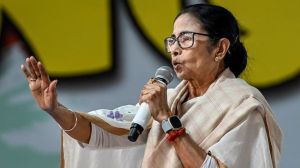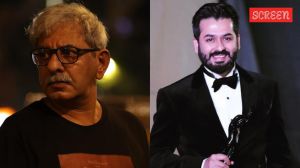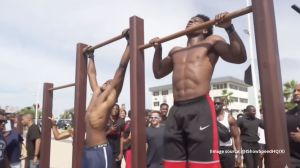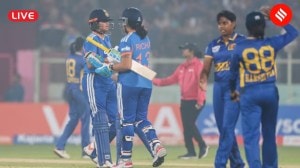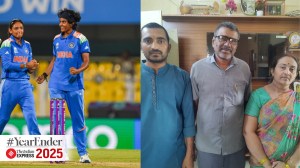Rowing can also be popular
CHANDIGARH, May 20: Dalbir Singh took to rowing at an age when not many sports promoters would have taken him seriously. But he proved his w...

CHANDIGARH, May 20: Dalbir Singh took to rowing at an age when not many sports promoters would have taken him seriously. But he proved his worth to win the highest award in the field of sports 8211; Arjuna Award 8211; for his outstanding performance in the national and international arena in 1993.
Dalbir Singh, who is here as a coach with the national rowing team, took to rowing after joining the army. Said he: 8220;Sports is more than just a physical activity.8221;
In fact, Dalbir is with the national side ever since he gave up competitive sports in 1991. 8220;It was in the army that I learnt the basics of the sport in 1980,8221; recalls the Arjuna Awardee. Dalbir, who hails from Etah, a small town in Uttar Pradesh, got an opportunity to master the stroking techniques when he joined the Army Corps of Engineers at Roorkee. 8220;It was a routine exercise for us to ferry rivers in small boats and I learnt how to propel the boat,8221; said Dalbir.
The event proved rich dividends when army authorities thought of selecting an all army rowing team in 1983. Dalbir was one of the lucky ones to find a slot in the team. His powerful athletic built, soon caught the eyes of Col Parveen Kumar Oberia, whom he still regards as his guru8217;.
Dalbir8217;s talent first surfaced in 1984 when he tasted victory on his debut in the Amateur Rowing Association of Eastern Countries ARAEC, winning a bronze in singles scull event. The event remained his favourite till 1989.
However, he got his first gold in the 1985 nationals in the open category held at Madras. The same year, however, he slumped to the fourth position in the first Asian championship in Hong Kong.
The defeat made the coach and the trainee to rework their strategy. Dalbir again found the golden touch and he went on to win the first place in the Calcutta edition of the ARAEC. 8220;When I lose a race, I ponder over it and change my training schedule. And it works well,8221; said the oarsman. That means more work and endless hours at the gym and in water. The excruciating training schedule, however, not only brought laurels at home but also at the international level. From one silver in the Second Asian Championship, held at Shanghai China, to 2 silver single and double scull in the third Asian Championship saw the phenomenal rise of the army man. Though, Dalbir went on the win a bronze in the World Invitation Meet at Moscow in 1990 and two bronze in the 1990 Beijing Asian Games, he regards 1989 as his best year, in terms of his performance. He bagged 2 silver medals in Asian Rowing Championship. 8220;I was in full form, but missed a gold by a wafer-thin margin,8221; laments Dalbir. Dalbir, who gave up competitivesports after the World championship in 1991 and took to coaching, says that if district and state units come forward and chalk out a careful plan at the grass root level, rowing can become popular. 8220;Competition at the sub-junior and junior levels can improve the standard at the national level,8221; observes Dalbir.
Fact file
National championship in 1985 8212; gold in singles scull.
First Asian rowing championship in 1985 8212; 4th position.
Seoul Asian Games in 1986 8212; participation.
National meet in 1987 8212; gold in single scull.
Second Asian rowing meet in 1987 8212; silver in single scull.
World Invitation meet, Italy, 1988 8212; participation.
Third Asian rowing meet in 1989 8212; 2 silver single and double scull.
International invitation meet, Moscow, 1990 8212; bronze singles scull.
Beijing Asian Games, 1990 8212; 2 bronze singles and double scull.
Arjuna Award in 1993
- 01
- 02
- 03
- 04
- 05









